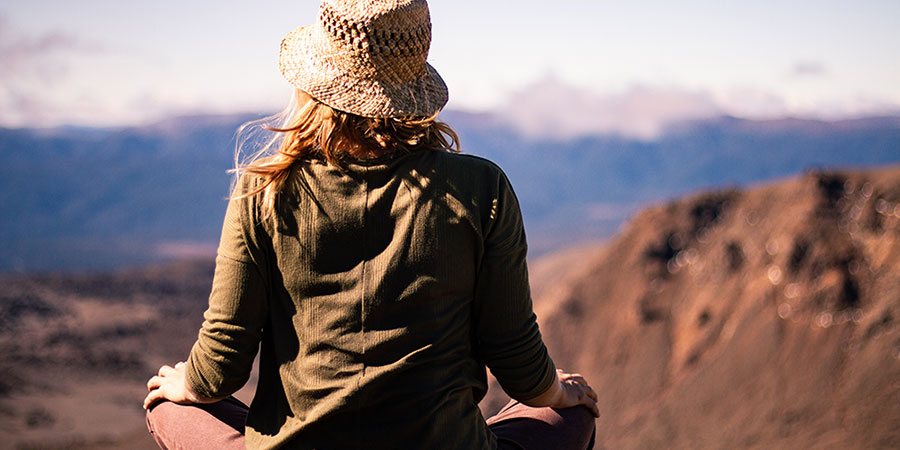Fashion is so much more than just a striking dress, well-pressed suit or pair of Louboutins – it’s about wearing your statement on your sleeve, and that’s precisely why the ethical and sustainable fashion industry has grown by $4 billion over the past ten years. With mounting social pressures tailoring this face of the industry, we’re taking a look at what the future holds and how investors can potentially benefit whilst protecting our planet at the same time.
New shoes, new views – why the fashion industry is changing
Fashion has never been one to stand still. From bra-burning in the ‘60s to the anti-fur movement in the ‘80s – fashion is (and always will be) used as a means to communicate and support changing societal views. And, importantly, consumer spending always follows. So what are the issues of today, affecting our outfits, and the £33.2 billion fashion industry, of tomorrow?
Veganism
The number of vegans in the UK has quadrupled to 60,000 over the past four years – a number expected to grow by 327% by 2020. It’s clear, however, that veganism is more than just a diet – it’s a way of life, affecting how people eat, travel and, importantly, dress. Wool, leather, silk, feathers, cashmere and suede are all off the menu, as consumers look for clothing that’s free from animal products and cruelty. In fact, this past year alone saw a 39% increase in online searches for vegan fashion – demonstrating a growing gap in the market.
Sustainability
In February, we saw hundreds of Extinction Rebellion protestors take to the streets during London Fashion Week – not eagerly awaiting Victoria Beckham’s new line but instead bringing attention to the colossal impact that the fashion industry has on our planet. Global clothing production now exceeds more than one billion garments per year, but our wardrobes aren’t getting any bigger. 73% of our clothing ends up in landfills – unloved, unrecycled and creating unthinkable damage to our planet. And it gets worse – greenhouse gases from textile production are estimated at 1.2 billion tonnes per year, 2,700 litres of water are used to make a single cotton shirt, and one-third of the ocean’s microplastics are from synthetic fabrics.
Fairtrade
Fairtrade practices have become almost standard within the food and drinks industry, prompting consumers to switch their attention and motivations to fashion. The demand for fast fashion – the term for high-volume, low-margin, cheap-to-buy and easily disposable clothing – has led to the exploitation of vulnerable workers and farmers. Low pay, long hours, child labour and dangerous working conditions are not only prevalent in the industry but they’re also gaining media attention – prompting shoppers to question the ethics behind their disposable wardrobes.
Green is the new black – opportunities for investment
The issue of sustainable and ethical fashion has become so popular that its growth is expected to contribute significantly to the £51.2 billion that the UK clothing industry is predicted to reach by 2022. So, how can you get involved?
Vegan fashion
Vegan fashion has come a long way since Stella McCartney first stepped onto the scene with her no-fur, no-leather fashion brand in 2001. Popular high-street and internet names, such as ASOS and The Kooples, are already introducing the vegan term into their clothing lines, but perhaps the most interesting niche for investors is that of vegan footwear. Leather, suede and silk all dominate our shoe stores and cupboards, posing an attractive opportunity for vegan footwear brands to capitalise on.
Open & honest fashion brands
The fashion industry isn’t best known for being caring, kind or transparent, which is why open and honest fashion brands will perform well over the coming years. Sustainable business is shown to increase a brand’s EBIT margin by one to two per cent – but why? It’s because consumers are now less motivated by price and more motivated by brands which reflect their values. Eco-friendly fashion brands who are openly reducing their environmental impact will benefit from increased custom as their customers attempt to do the same, providing profitable opportunities for investors.

“Slow fashion”
Not its official term, but with fast fashion under the spotlight, we can expect consumers to spend more on ethical, stylish and made-to-last clothing and footwear. We’ve already seen backlash over fast fashion retailer Boohoo’s new recycled range, demonstrating the growing demand for more high-end, quality and guilt-free brands.
Online
Online clothing and footwear spend are set to increase by 67.4% over the next five years. Fast fashion brands, such as Boohoo and ASOS, have so far dominated the online clothing market, but with consumers stepping away from disposable fashion, there are potentially significant investment opportunities to be had with higher-end, ethical, vegan and sustainable online clothing and footwear brands.
That’s so last season – challenges ahead
Of course, as with any investment, knowledge of the challenges ahead is crucial – and the sustainable clothing industry is no exception.
Money
“Buy less, choose well” is the advice from Vivienne Westwood, but just how many shoppers are willing to trade in their fast fashion wardrobes for one statement piece? As it turns out, quite a few. 61% of millennials and 58% of Gen Z are willing to pay more for eco-friendly products – creating a market opportunity for brands which satisfy these motivations.
Fashion fades
We all know that fashion can change quicker than you can walk to your wardrobe, and while vegan footwear and fairtrade clothing are fashionable today, how can we be sure they’ll appear on the catwalks tomorrow? While this is a valid concern, the motivation behind sustainable fashion (changing now to protect tomorrow) looks unlikely to change any time soon – meaning that eco-friendly fashion isn’t just going to stay around, it’s likely to keep growing.
Clashing colours
There is growing concern that vegan and eco-friendly fashion don’t always go hand-in-hand. Vegan materials aren’t always eco-friendly, and eco-friendly materials aren’t always vegan. Will this affect either industry’s growth? Unlikely, but it does suggest that vegan brands with green credentials and fairtrade practices will ultimately perform better than those only offering one solution.
Ethics plus aesthetics – final thoughts
“Keep your heels, heads, and standards high” – never has Coco Chanel’s advice been more relevant. The clothing and footwear we buy are directly impacting the future of our planet, meaning that something has to change – presenting unique and interesting investment opportunities for those looking to make a difference while hopefully making a profit – and we’re excited to be a part of that.


